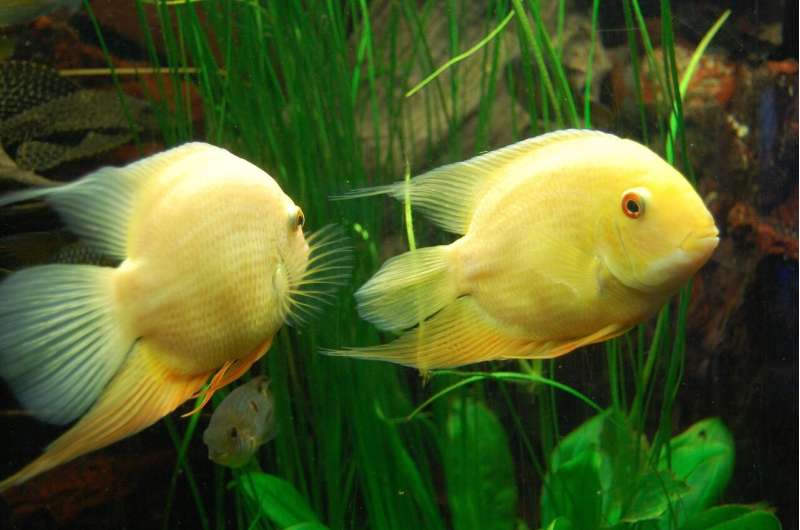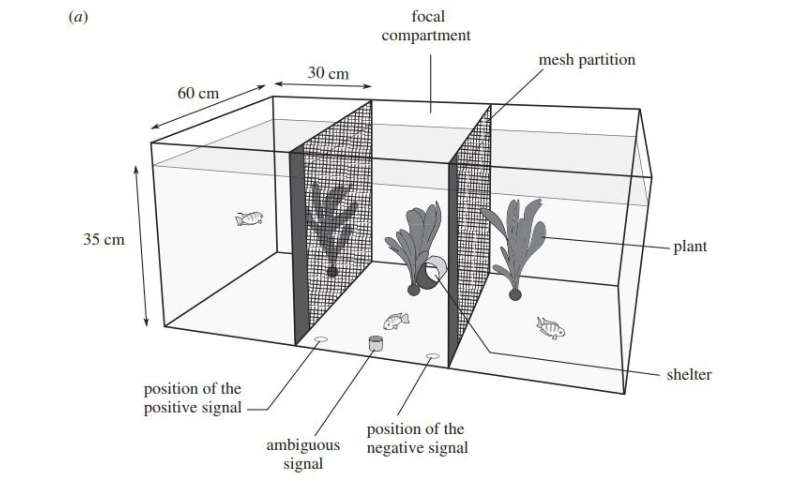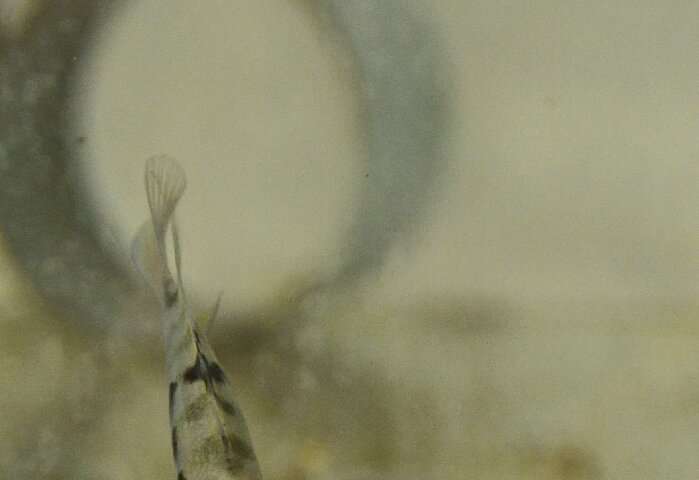June 12, 2019 report
Monogamous fish found to show pessimistic bias when separated from mate

A team of researchers at the University of Burgundy has found that a certain type of monogamous female fish exhibits a pessimistic bias when separated from its mate. In their paper published in Proceedings of the Royal Society B, the group describes experiments they conducted with convict cichlid fish and what they found.
When humans pair-bond in a sexually monogamous relationship, there is an element of emotion involved—but what about other animals? That was the question the researchers sought to answer. To learn more, they conducted experiments with convict cichlid fish in their lab.
In the wild, convict cichlid fish mate monogamously. After mating, when the female produces eggs, the males hang around to protect her and the eggs. And after the eggs hatch, the young are protected by both parents. To learn more about the bonds they forge, the researchers conducted a two-part experiment.
In the first part of the experiment, the researchers separated a large tank into three sections. They placed a female in the middle tank and a male in each of the other two sections. The team watched to see which she demonstrated a preference for by cozying up to one or the other. The researchers then put one of the males in with the female and allowed them to mate. They report that the females who were allowed to mate with their preferred choice spawned faster, had more offspring and took better care of them compared to those paired with a rejected male.
-

The same set-up was used for experiments 1 and 2. The box in the front of the tank was only introduced in experiment 2. Credit: Proceedings of the Royal Society B: Biological Sciences (2019). DOI: 10.1098/rspb.2019.0760 -

To effectively measure each fish's mental response to separation, researchers from the University of Burgundy in Dijon trained females to use their mouths to open two small boxes, placed either side of their tanks
In the second part of the experiment, the researchers trained the females to recognize the difference between a box containing food and one that was empty. Then, they introduced a new box that required investigation to determine if it held food. The level of interest interest they showed in investigating the new box was considered a marker of her mood. They found that when her chosen mate was present in the tank with her, she expressed far more interest in checking out the new box than if the rejected male was with her. The researchers claim this is an example of "pessimistic bias," demonstrating that the females do become gloomier when separated from their desired mate.
More information: Chloé Laubu et al. Pair-bonding influences affective state in a monogamous fish species, Proceedings of the Royal Society B: Biological Sciences (2019). DOI: 10.1098/rspb.2019.0760
Journal information: Proceedings of the Royal Society B
© 2019 Science X Network


















